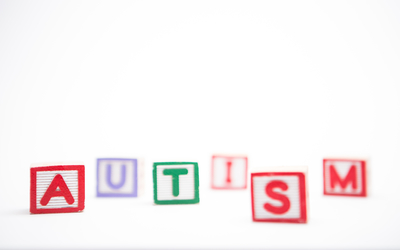Autism Symptoms You May be Overlooking
The word autism comes from the Greek word for ‘autos’ which means ‘self’, describing the condition which results in difficult social interactions. It wasn’t until 1960s that medical experts realised that autism was separate to Asperger’s syndrome or other similar conditions, and was treated as its own entity. Behavioural therapy and treatments are used to treat this condition and other related disorders. Autism is actually characterised as a range of related but closely connected disorders, which all share common symptoms. The condition results in the delayed development which fundamentally focuses on speech, action-reaction responses and play, as well as general interaction with their environment.
The symptoms of autism generally appear in the first here years of a child’s life, and are most noticeable to parents or caregivers of the child. It’s very difficult to diagnose this condition before the age of two, and the symptoms generally begin to show between 12 and 18 months, but if they are diagnosed around this time then intense treatment can help to boost the brain’s activity to return it to normality. Regardless of the severity of the condition in the child, every autistic person will experience problems in the following areas – social interactions, difficulty in initiating friendships, problems engaging in group activities and inability to hear people when others speak to them. They also have no interest in what is going on around the, they run away from displays of affection, and they have difficulty connecting with emotions in other people.
Autistic people have problems developing their communication skills, both verbal and non-verbal, as well as picking up social cues and body language. If your child’s behaviour becomes cold, they avoid making eye contact, their facial expressions become detached from what they say, or if they have unusual reactions to sights or sounds, then you should consult your GP for advice. Their language often is affected too, with as many as 40 percent of autistic people not speaking at all during their lives. If they mention themselves in third person, repeat words or phrases a lot, use an abnormal tone or odd rhythm when speaking, or use incorrect language use, these may be signs that they are developing autism, so you should seek medical advice.
What most people don’t realise is that autism isn’t restricted to verbal and developmental problems, it can also affect the physical movement of the child. They may experience difficulty in adjusting to a change in the environment, become locked in repetitive stereotypical behaviour such as twirling or hand clapping, spend extremely long periods of time staring at objects, or become obsessed with an object. They may also become interested in mundane activities which are usually habitual, such as taking a specific route to work. Because the symptoms of autism are often very subtle, and they occur at an age where many children will be displaying very similar signs through natural development, it can be very hard to spot the signs.
Autism can lead to the child becoming calm and composed, so many parents pass off the symptoms as the child just being well behaved. However, it’s important that you keep an eye on the behaviour of your child so as to be able to spot the signs early if there is a problem. There are various treatments available for autism, but early detection helps with the effectiveness of this treatment. If you’re concerned about any of the traits your child have developed, speak to your GP who can run tests to determine if they are displaying signs of autism.

Comments are closed.